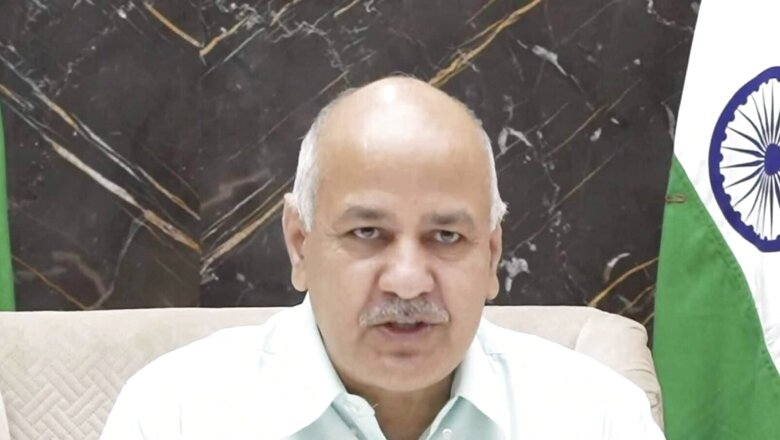
views
The Delhi government’s new promotion policy mandates that students of classes 5 and 8 will not be promoted if they fail to clear the annual examinations, doing away with its earlier ’no detention’ rule. Deputy Chief Minister Manish Sisodia said the ’no detention policy’ was very progressive but the education system could not take its full advantage due to lack of preparation.
He said through the new guidelines, the government aims to bring the ”same degree of seriousness” in elementary grades as in classes 10 and 12. In 2009, the Right To Education Act introduced the ’no-detention policy’ under which the students up to class 8 had to be promoted. To ensure quality education, Continuous and Comprehensive Evaluation was introduced, but it was scrapped in 2017 due to poor implementation.
In 2019, the Delhi government had approved the formation of a committee to look into the removal of the no-detention policy, after Parliament amended the Act. ”If a child is unable to pass class 5 or 8, he/she will get another chance to improve the performance within two months through re-examination,” the new assessment guidelines of the State Council of Educational Research and Training (SCERT) said.
Read | 30 Delhi Govt School Principals, Officials to Go on a ‘leadership Training’ at Cambridge University
In order to be declared ”pass” at the end of the session, a student must secure at least 33 per cent marks in each subject, according to the guidelines. The promotion is also subject to the condition that minimum 25 per cent marks must be scored in mid-term plus annual examinations,” the guidelines said.
It further said in order to be declared ”pass” in the re-examination, the student will have to secure at least 25 per cent marks in the subject(s), and if not, he or she will be placed in the ”essential repeat” category — which means the candidate will be held back in the same class for next session. According to the guidelines released by the Directorate of Education on Friday, students of classes 5 and 8 will also be assessed on their co-curricular activities, in addition to mid-term and annual examinations.
The co-curricular activities include project-based activities, portfolio, participation in the classroom, participation in activities such as theatre, dance, music, sports, and attendance. The guidelines will be implemented in all the government, government-aided, Municipal Corporation of Delhi, New Delhi Municipal Corporation, Delhi Cantonment Board and recognised unaided schools within the National Capital Territory of Delhi from the academic session 2023-24.
Read all the Latest Education News and Breaking News here


















Comments
0 comment